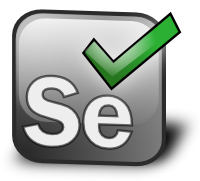Conferences, Standards, and Sponsorships: Selenium’s Work in 2016
by on January 12, 2017
This series covers new developments and exciting projects taken on by Conservancy member projects. To learn more about Conservancy member projects, or the non-profit infrastructure support and services offered by the Conservancy, check out Conservancy’s Projects page. Please support Conservancy so we can continue to help all this important software.

SeleniumConf UK wrapped up November 16th! For three days, Selenium developers and enthusiasts got together to share ideas, work together, and spend time with other community members in London. This year, there were three amazing keynotes, a diverse group of twenty-six speakers, and four full day workshops. Talks are already posted online, and you can watch them on the SeleniumConf UK YouTube channel.
Selenium is a freely-licensed browser automation tool. While it’s most frequently used for testing purposes, it has capabilities beyond that. These include scaling and distributing scripts across environments and reproducing bugs. It’s currently functional in eleven languages, including C#, JavaScript, Python, and Ruby. All the major browsers ship with support for Selenium out of the box now, too.
Selenium has been a Conservancy project since 2010. Starting in 2011, Conservancy began to support Selenium’s efforts to host their own conferences, which have grown over the years to the successful events we know today. As a tool, Selenium has become an industry standard, with users ranging from individuals plugging away at their own projects to some of the largest companies in tech.
Selenium demonstrates a strong commitment to fiscal responsibility, and the project leadership looks to sustain Selenium beyond individual donations. In order to help power the project, the team promotes and manages large corporate sponsorships.
Earlier this year, Selenium 3.0 was released, replacing the original Selenium Core—Jason Huggins started developing the Core in 2004—with one based on Selenium WebDriver. Much like Selenium itself, WebDriver is becoming a standard in its own right. The World Wide Web Consortium (W3C) has a draft specification for browser automation based on Selenium WebDriver, and members of the Selenium project are on the team to make this an official recommendation.
Interested in getting involved with Selenium? There are lots of ways to contribute to the project—check out the documentation for details! You can also help them along by donating to Selenium.
Please email any comments on this entry to info@sfconservancy.org.
